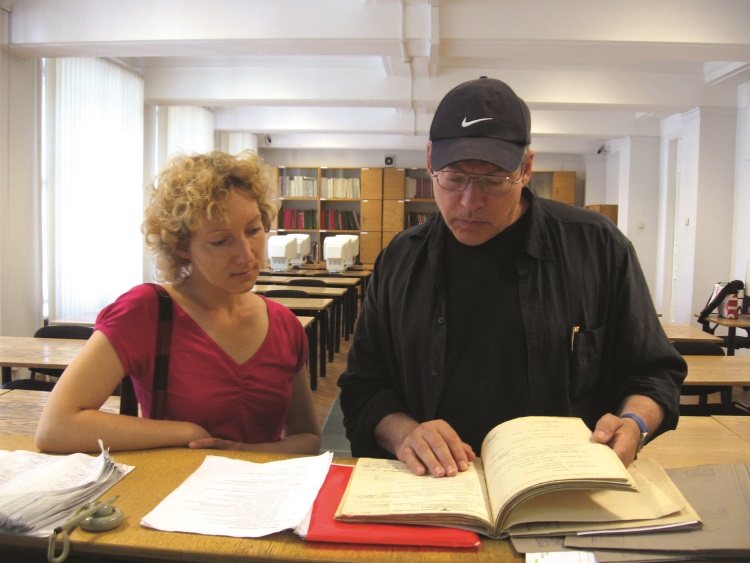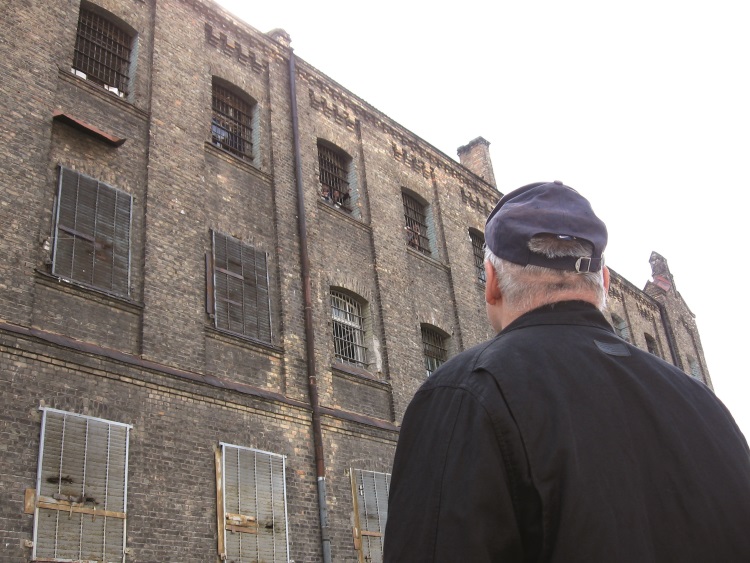Having recently turned 80 (he was born on November 25, 1942), Rosa von Praunheim has somehow always been ahead of the curve. Provocative, shrill and brutally honest, the German filmmaker and gay activist has pursued a unique career. Many know him as a prolific director of his absolutely non-mainstream works for German cinema, while others remember his glittery and plush costumes, or his argumentative appearances on TV talk shows where already decades ago he fought for more queer visibility and said things about homosexuality that might sound natural today but back then caused a stir and often public uproar.
One thing is sure: there has rarely been a dull moment in a life that took a new and unexpected turn in 2000 when von Praunheim found out that he was actually a foundling from Rīga.
"Hello freaks, film friends and perverts! Some describe me as the most popular and some as the least popular gay film director in Germany. And I have done a lot for this," von Praunheim confidently states about himself on his website. This is all but understatement: the radical filmmaker has shocked audiences for decades with taboo-breaking and often outrageous films bearing such titles as "Can I Be Your Bratwurst, Please?“, with many of them focusing on gay-related themes and LGBT+ issues.

He has directed about 150 feature and documentary films to date, as well as countless short videos for television – some of them have gained cult status. In addition, von Praunheim has worked as theatre director,
producer, film school lecturer and author, receiving numerous awards for his films and political work along the way.
Icon of the gay rights movement
Von Praunheim first came to prominence and became "famous and notorious," as he likes to say himself, in 1971 when his shockingly frank debut film about gay men who engage in anonymous sexual activities was shown on German public television and spawned a national controversy.
At a time when homosexuality was still a taboo topic for most people in Germany, even the very name of the film was a talking point with an until then unheard-of message: "It Is Not the Homosexual Who Is Perverse, But the Society in Which He Lives". Discussions ignited by it led to the founding of some of the first gay-rights groups in Germany that demanded equal rights and an end to discrimination.
The film made Rosa von Praunheim an instant figurehead of the gay and lesbian rights movements in Germany which later in the 1980s was strongly affected by the HIV epidemic. Becoming an early advocate of AIDS awareness and safer sex, the filmmaker addressed the issue in his films such as the internationally acclaimed film "A Virus Knows No Morals" (1985).
The battle against AIDS and for more solidarity with the gay community includes also his probably most controversial action: In 1991, von Praunheim outed two popular TV celebreties in a TV talk show – one of the biggest scandals in German TV history.
"Rosa von Praunheim has always set impulses in his queer-activist and artistic work, asked the right and often uncomfortable questions, and provided important impetus in many ways – not only for German auteur cinema, but also for social discussions and emancipation“, Goethe Institute Riga director Arendt
Röskens told LSM.
“In the more than 50 years of his work, he has at all times been argumentative, polemical and experimental.“
Von Praunheim, Mischwitzky, and Radtke
Along with films dealing with homosexuality and also often older women, von Praunheim has also centred some of his works on biographic explorations. Not least because in 2000 a whole new chapter in his life opened up when his then 94-year-old mother suddenly admitted to him that he was not her biological son.
Disclosing a well-kept family secret, she told him that she adopted him from a children´s home in Rīga in 1942 during the German occupation and took him with her to Germany at the end of the war. But that was all she would say. Three years later she died.
At first, the filmmaker, who grew up as Holger Mischwitzky before adopting his stage name, did not want to do further investigations out of love for his adoptive parents. But after his mother´s death in 2003, his curiosity awoke and he began to explore his unknown origins. But where to start?
Von Praunheim had only a snippet of information and no clue what his real surname was. The lengthy search initially seemed hopeless and involved many dead ends and detours. Each new revelation led to another set of mysteries and possible scenarios.
Instrumental for von Praunheim was the help of the Latvian genealogical researcher Agnese Lūse who went deeply into the historic archives of Rīga to look for long-lost documents.
"In the search for his origins I happened to play, as he himself would later say, the role of a decisive catalyst", as she described her function in the Latvian cinema magazine Kino raksti. From the paper trail that remained from the 1940s, Lūse unearthed the real birth name of von Praunheim: Holger Radtke. No less amazing was the subsequent discovery of his real birth certificate in Berlin. In cold print it stated that the filmmaker was born in Rīga's central prison.
Exploring his own past in Rīga
The search for his biological mother began. Von Praunheim embarked on a journey to Rīga that he documented in his very personal and intimate film "Two Mothers" (2007), originally published in German under the title "Meine Mütter – Spurensuche in Riga". In the Latvian capital, he traced his roots, talked to
witnesses and historians, and visited locations of his unknown early life. In one of the most impressive and haunting scenes, von Praunheim enters in the still-used Rīga central prison to stand in the spartan gynecological office of the hospital unit, realizing that this was most likely his birthplace.

"My shooting in Riga in the summer of 2007 was the most moving of my life," von Praunheim later recalled. For many critics it is also one of the best films in his long career since it also goes far beyond von Praunheim's personal fate. The 87 minute-long documentary touches also upon German and Latvian history, illustrating the horrors of the Second World War and the German occupation of Latvia.
Yet despite all efforts, it was no longer possible for von Praunheim to reconstruct why his real mother, who later died in a psychiatric ward, was arrested in Riga. Her life story is tragic and much remains unknown. The search for his father also came to nothing. At some point, the director thus stopped asking questions and discontinued his search, while still retaining his very own irony and wit.
"So I was born in a prison. I will have get used to it", he stated in the film. "Maybe it explains a few things..."
































